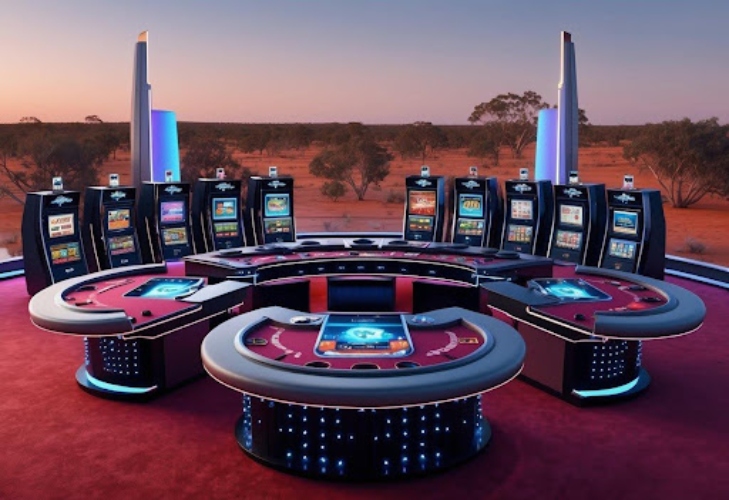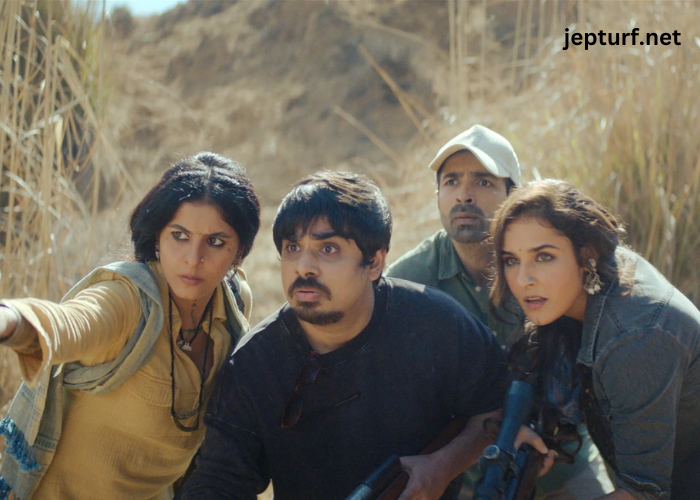In the ever-evolving world of entertainment, staying ahead of the curve is no small feat. With an industry that constantly pushes boundaries, reinvents itself, and sets new standards, it’s crucial to keep a finger on the pulse of what’s happening. From movies and television to music and celebrity culture, the entertainment world is a dynamic realm that’s always in the spotlight. In this article, we’ll delve into the latest trends, breakthroughs, and controversies that have been shaping the showbiz landscape in recent times.
The Streaming Revolution: Redefining How We Consume Content
One of the most significant shifts in the entertainment industry over the past few years has been the streaming revolution. Streaming platforms like Netflix, Amazon Prime, Disney+, and Hulu have disrupted traditional cable television and cinema distribution models. They’ve become the go-to destinations for consumers seeking high-quality, on-demand content.
The rise of these platforms has led to a golden age of television, with a surge in original programming and innovative storytelling. Series like “Game of Thrones,” “Stranger Things,” and “The Crown” have captured audiences worldwide, redefining the way we engage with episodic content.
Moreover, streaming platforms have expanded their horizons beyond television series, producing blockbuster films that rival traditional studios in terms of both budgets and star power. The release of films like “The Irishman” and “Bird Box” directly to streaming platforms has challenged the notion that big-screen cinema is the only path to success in the film industry.
But the streaming revolution has not only impacted content consumption but also changed how content is produced and distributed. Smaller, niche genres and underrepresented voices have found a home on these platforms, catering to a diverse range of tastes and preferences. This democratization of content has given rise to fresh, innovative storytelling that might not have found a place in traditional Hollywood.
Hollywood’s Ongoing Diversity and Inclusion Struggles
While the streaming revolution has opened doors for more diverse voices, the entertainment industry still grapples with issues of representation and inclusion. The #OscarsSoWhite movement of recent years highlighted the lack of diversity in the Oscar nominations, sparking conversations about systemic biases within the film industry.
Hollywood has since taken steps to address these concerns, with increased efforts to diversify both in front of and behind the camera. Films like “Black Panther” and “Parasite” have not only achieved critical acclaim but have also demonstrated the commercial viability of diverse storytelling. This shift reflects the changing demographics and expectations of modern audiences.
Television, too, has made strides in representation. Shows like “Pose,” which features a predominantly LGBTQ+ cast and crew, have garnered praise for their authentic portrayals of underrepresented communities. As the industry continues to evolve, it’s becoming clear that diversity and inclusion are not just buzzwords but essential components of storytelling in the 21st century.
The Power of Social Media and Celebrity Influence
Social media has become a double-edged sword for celebrities and entertainers. On one hand, platforms like Instagram, Twitter, and TikTok have provided a direct line of communication between stars and their fans. Celebrities can share their thoughts, behind-the-scenes glimpses, and even promote their work directly to a global audience.
However, the immediacy of social media has also exposed celebrities to intense scrutiny, leading to controversies that can quickly go viral. Cancel culture, in which public figures face backlash and boycotts for their words or actions, has become a powerful force in the entertainment industry. While it’s important to hold individuals accountable for harmful behavior, the fast-paced nature of social media sometimes results in rushed judgments and consequences that may not be proportionate to the offense.
In this landscape, celebrities and public figures must carefully navigate the fine line between authenticity and public relations. Many have opted for more curated, controlled online presences to avoid controversy, while others have chosen to speak out and use their platforms to address important social issues.
Music: The Evolving Landscape of Sound
The music industry is also in the midst of transformation. Streaming platforms like Spotify and Apple Music have shifted how we discover and consume music, while YouTube and TikTok have turned aspiring musicians into overnight sensations.
The rise of genres like K-pop, Latin music, and EDM has expanded the global reach of music, breaking down cultural barriers and connecting artists with fans across the world. Artists like BTS and Bad Bunny have achieved international stardom, proving that music knows no boundaries.
Furthermore, the concept of the album has evolved. In an era of single-song releases and playlists, artists are exploring new ways to connect with listeners. Concept albums, visual albums, and immersive multimedia experiences are becoming more common, offering fans a deeper and more interactive connection to the music they love.
The Pandemic Effect: Navigating Unprecedented Challenges
The COVID-19 pandemic has had a profound impact on the entertainment industry. The closure of theaters, cancellation of live events, and halting of film and television production have forced the industry to adapt rapidly.
Streaming platforms experienced a surge in subscribers as people sought entertainment from the safety of their homes. Virtual concerts and events became the norm, allowing musicians and performers to connect with their audiences in new ways. The pandemic also accelerated the shift towards digital releases, with movies like “Wonder Woman 1984” and “Hamilton” premiering directly on streaming platforms.
However, the pandemic also highlighted the vulnerabilities of the industry, particularly for those working behind the scenes. Crew members, stagehands, and freelance workers faced significant challenges as their livelihoods were disrupted. This has led to conversations about the need for greater support and job security within the industry, even as it continues to evolve.
Looking to the Future: What Lies Ahead
As we move forward, it’s clear that the entertainment industry will continue to evolve and adapt to changing consumer preferences and technological advancements. Virtual and augmented reality are on the horizon, offering new possibilities for immersive storytelling and experiences. AI and machine learning are being used to analyze audience preferences and create content that caters to individual tastes.
Moreover, the global nature of entertainment will only continue to expand. International collaborations, cross-cultural storytelling, and the embrace of diverse voices will shape the future of the industry. Streaming platforms will remain a dominant force, with traditional studios and networks seeking to carve out their own space in the digital landscape.
The power of fandom and fan engagement will also be a driving force. Fans have become a vital part of the entertainment ecosystem, influencing everything from casting decisions to the revival of canceled shows. The interactive relationship between creators and their audiences will likely become even more pronounced.
In conclusion, the world of entertainment is in a constant state of flux. The streaming revolution has transformed how we consume content, while diversity and inclusion efforts are reshaping the industry from within. Social media has given celebrities unprecedented influence and scrutiny, and music continues to evolve and expand its global reach. The pandemic has forced the industry to adapt and innovate, and as we look to the future, it’s clear that the only constant in showbiz is change. With technology, creativity, and a growing global audience, the entertainment industry is poised for an exciting and unpredictable journey in the years to come.







